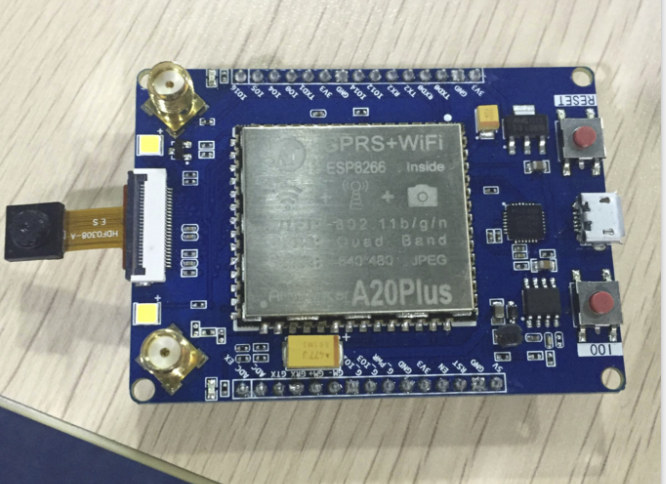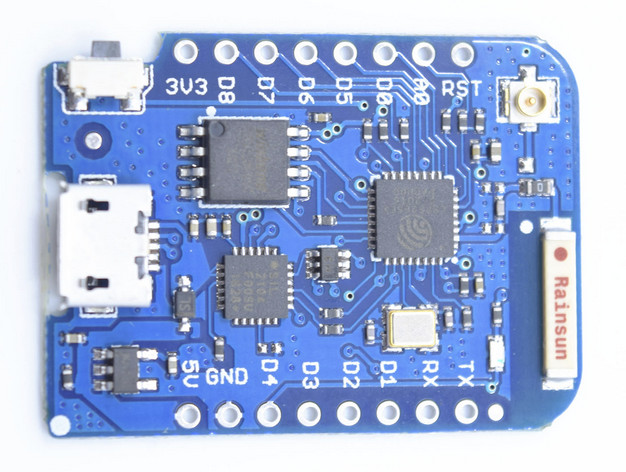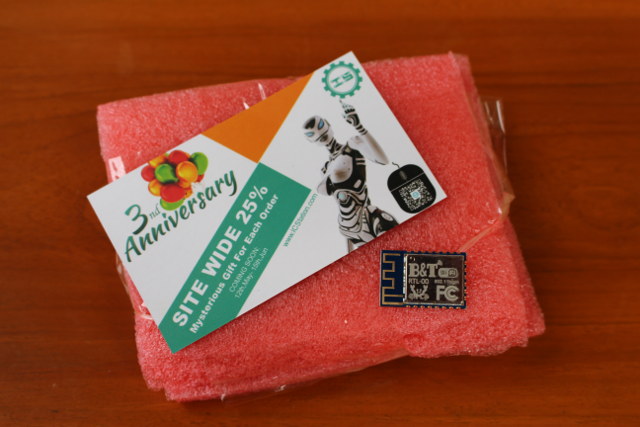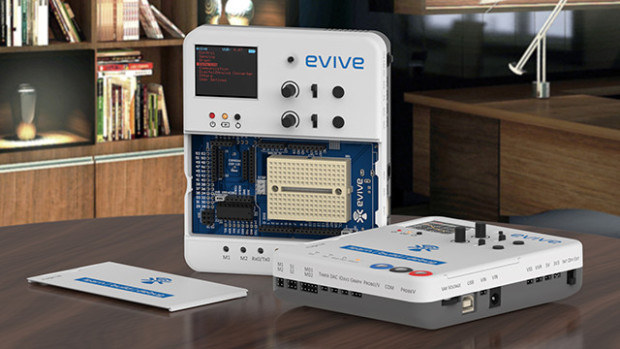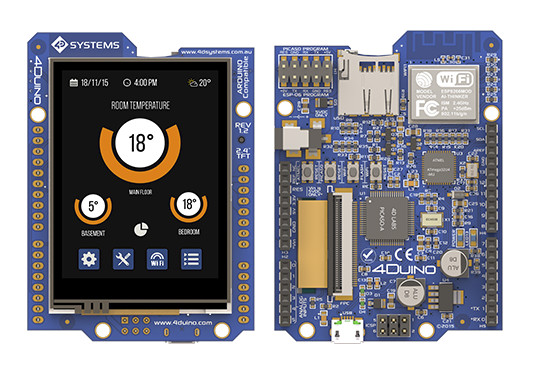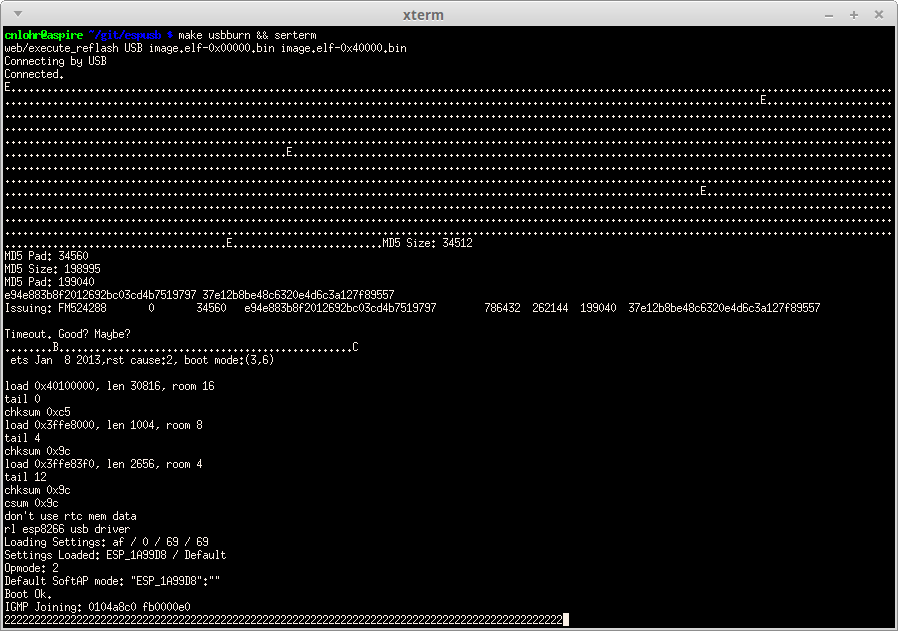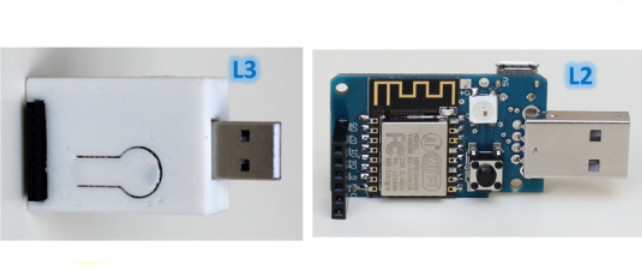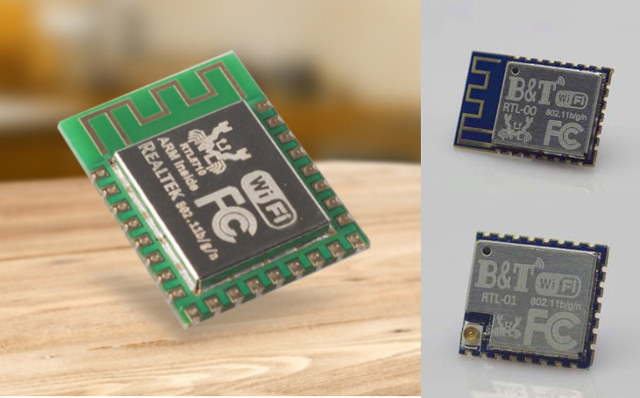A.I. Thinker, a company known for its ESP8266 module, has designed a new intriguing product with A20Plus board powered by Espressif ESP8266 (or ESP8285) WiFi SoC, that also features GPRS connectivity, and a 0.3MP camera. There’s basically no info on the “English Internet”, but Raymond Tunning found lots of info in Chinese, and posted information and links on his blog. A20 Plus board specifications: Wireless Module – A.I. Thinker A20 module with GPRS and WiFi (ESP8266 or ESP8285), two antennas connector Camera – VGA camera interface (up to 640×480 resolution) compatible with OV7670, GC0308, GC0328, & GC0309 sensors. Expansion – 2x headers with GPIO, ADC, power signals… USB – 1x micro USB port for power and programming Misc – Reset and user button, two LEDs (for flash?) Dimensions – TBC An Android app (binary + source code) is provide to retrieve pictures (apparently no video for now) over WiFi or […]
$5 Wemos D1 mini Pro ESP8266 Board includes 16MB Flash
Wemos D1 mini is one of my favorite ESP8266 development boards thanks to its small size, shield support, and low $4 price tag. There’s now a new version of the board – dubbed Wemos D1 mini Pro – with 16MB flash instead of 4MB for the original version, and a few other modifications. Wemos D1 mini Pro specifications: WiFi 802.11 b/g/n module based on ESP8266EX with 16 MB flash, chip antenna and external antenna connector Expansion – Through holes with 11x digital input/output pins (3.3V) supporting interrupt/PWM/I2C/one-wire (except D0 pin) 1x analog input (3.3V max input) Reset and power signals (5V, 3.3V, GND) USB – micro USB port Misc – Reset button Power – 5V via micro USB or 5V pin Dimensions – 34.2 x 25.6 mm Weight – 2.5 grams Beside the larger flash, the main differences are listed in a Wemos forum post: External antenna connector – switch […]
Getting Started with B&T RTL-00 RTL8710 Module – Serial Console, AT Commands, and ESP8266 Pin-to-Pin Compatibility
The announcement of the ultra-low cost ARM based Realtek RTL8710 WiFi modules for IoT applications generated quite a lot of buzz since they can potentially compete with the popular ESP8266 modules. The main problem at the time was documentation and software support, but after some searches we could find that RTL8710 was part of Realtek Ameba family, and found some documents and an SDK for RTL8710/RTL8711/RTL8195. ICStation also kindly provided one B&T RTL-00 module for review, which costs $3.55 shipped per unit, and as low as $2.85 if you purchase 10 or more. The question here is how to get started? The answer can be found in page 8 of the Chinese datasheet for the module with GB0 and GB1 pins used for Tx and Rx to access the serial console. Time for some soldering… For the first test, we’ll just need Tx (GB1), Rx (GB0), GND and 3.3V, and […]
Evive is an Arduino Compatible Platform with Enclosure, Lots of I/Os, Buttons, and an 1.8″ Display (Crowdfunding)
Engineers at Agilo Technologies, an Indian startup based in Kanpur, Uttar Pradesh, felt that the wire mess often produced while learning or prototyping with Arduino boards could be an issue, and it was easy to mis-wire your setup, so they’ve decided to create a user and student friendly Arduino compatible system with many of the items you’d normally use with Arduino board such as buttons, probes inputs, an 1.8″ color display, headers for ESP8266, Bluetooth, and XBEE moduels, etc.. and all of that enclosed in a neat case. Evive was born. Evive specifications: MCU – Atmel ATmega2560 8-bit AVR MCU @ 16 MHz with 256KB flash, 4KB EEPROM, 8KB SRAM Storage – micro SD slot up to 32GB Display – 1.8″ TFT display; 160×128 resolution; 18-bit color User inputs – Tactile and slide switches, joysticks, and potentiometers Probes inputs – Voltage / Intensity sensing inputs USB – USB device port Expansion Headers […]
4Duino-24 is an Arduino compatible 2.4″ Color IoT Display Module with Atmel MCU and ESP8266 Module
I played with ITEAD Studio NEXTION serial color displays for Arduino boards and the likes a few months ago, and while the hardware seems good and the company offer a large choice of 2.4″ to 7″ models at a very affordable price, I didn’t find the Windows software to create the user interface to be very user-friendly. 4D Systems, an Australian company specializing in “graphics solutions”, will soon launch a similar 2.4″ display, but integrated into an Arduino compatible board also featuring an ESP8266 module for WiFi connectivity. 4Duino-24 “LCD IoT Display Module” specifications: MCU – Atmel ATmega32U4 micro-controller with 32KB flash, 2.5KB SRAM, 1KB EEPROM Storage – micro SD card slot (FAT16 support) for data and logging WiFi Module – ESP8266 based with 802.11 b/g/n connectivity, 1MB flash, support for Wi-Fi Direct (P2P), soft-AP Display – 2.4” LCD-TFT resistive touch display module with 240×320 resolution, 65K colors, and powered […]
ESP8266 Gets USB Support Thanks to ESPUSB Software Stack
Neither ESP8266 nor ESP32 support USB, so what am I babbling about? No, ESP8622 did not suddenly grow a USB PHY, but cnlohr decided to implement virtual USB support using two GPIOs (12 & 13) for the D+/D- USB signals, meaning you can connect any ESP8266 module through USB, or even update the firmware through USB without external hardware, apart from a single extra resistor. The source code is available on espusb repo on github. Please note that the code is currently work in progress, and USB implementation currently only works at 1.5 Mbit/s, with potentially future support for 12 Mbit/s. That’s the demo, and an explanation about the design process. Jean-Luc Aufranc (CNXSoft)Jean-Luc started CNX Software in 2010 as a part-time endeavor, before quitting his job as a software engineering manager, and starting to write daily news, and reviews full time later in 2011. www.cnx-software.com
vESPrino ESP8266 USB WiFi Dongle Supports Add-on Boards (Crowdfunding)
Last month, I wrote about WiThumb a USB WiFi adapter based on ESP8266 processor which can conveniently be plugged into any USB port for power and programming. However, the hardware design was questionable with the WiFi PCB antenna placed close to other components, and a temperature sensor likely to get pretty hot inside the case. There’s now another device based on a similar concept with vESPrino USB stick that also expose a few I/Os through its enclosure. ESPrino specifications: WiFi module – ESP-12 FCC & CE Certified module based on Espressif ESP8266 USB – 1x micro USB port, 1x USB port Expansion – 6-pin female header with 4 GPIOs, 5V and 3.3V Programming & debugging – Via USB through CH340G USB 2 Serial adapter Misc – Push button (GPIO0), WS2812b RGB LED (GPIO2), temperature sensor connected to ADC? (not visible on schematics) Power Supply – 5V through micro USB or […]
An Alternative to ESP8266? Realtek RTL8710 ARM Cortex-M3 WiFi IoT Modules Sell for $2 and Up
ESP8266 WiFi modules initially stormed the maker market for IoT applications thanks to their low price, and later it became the dominant WiFi IoT platform for hobbyists thanks to its large community of developers. But technology progresses over time, and it’s always fun to look out for new solutions, and Realtek RTL8710 could prove to be an interesting alternative with its ARM Cortex-M3 processor @ 166 MHz, a little more user memory (48KB), audio support, faster WiFi performance, while still keeping a low price, as modules can be purchased for $3.90 on ICS station, a little more on eBay, and as low as $1.95 per unit on Aliexpress including shipping if you purchase 100 pieces or more. A Chinese website as a side-by-side comparison between Realtek RTL8710 and Espressif ESP8266, which I also found translated into English. Realtek RTL8710 Espresif ESP8266 Package QFN-48 (6×6 mm) QFN-32 (5×5 mm) CPU ARM […]


